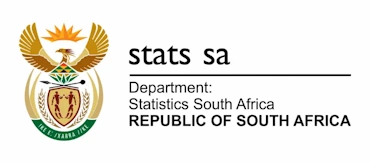Category Archives: Households

Jobs in the non-agricultural sector rise in the second quarter of 2023
The formal non-agricultural sector added 39 000 jobs in the second quarter of 2023, reaching almost 10,1 million jobs. According to the latest Quarterly Employment Statistics (QES, Q2:2023) survey released by Stats SA, there was a year-on year net increase of 104 000 jobs. Between March and June 2023, total (full- and part-time) employment rose read more »

Employment drops in Formal Non-Agricultural Sector in Q1 of 2023
According to the Quarterly Employment Statistics (QES, Q1:2023) survey released by Statistics South Africa (Stats SA), total employment in the formal non-agricultural sector decreased by 21 000 in the first quarter of 2023, bringing the level of employment to almost 10 million. The survey showed that 97 000 jobs were lost between March 2022 and March read more »

SA’S elderly population increasing steadily.
In 2022 the estimated population of South Africa included more than five million people aged 60 or older. This represents a 9,2 percent share of the overall South African population. According to a report by Statistics South Africa titled Marginalised Groups Series VI: The Social Profile of Older Persons, 2017–2021, more than half (60,9%) of read more »

Stats SA’s new property price index: Cape Town has become more expensive
Anecdotes about steep property price rises in the City of Cape Town are not without merit. Stats SA’s new residential property price index (RPPI) compares how housing prices have increased since 2010 across the eight metropolitan municipalities and nine provinces. Since 2010, residential property prices have grown by 141% in the City of Cape Town, read more »

Black Friday and shifts in consumer behaviour
With Black Friday upon us, South African consumers have begun scouting for the latest deals. Monthly retail trade sales data show how Black Friday has shifted shopping behaviour over time. Consumers splurge during the festive season The graphic below shows the distribution of retail trade sales by month, for the year 2019. If all months read more »
South Africa’s Income & Expenditure Survey Takes Off
Household income and expenditure surveys are an essential component to a healthy data ecosystem and critical for economic and developmental planning and decision-making. Statistical agencies like Statistics South Africa (Stats SA) use these surveys to inform the measurement of inflation and to better understand a country’s household economy and living conditions. “Out of every R1 read more »

Experience of disputes on the rise in SA
According to a new report released by Statistics South Africa (Stats SA), there is a 9,1 percentage point increase in the proportion of individuals that have experienced one or more disputes between 2018/19 and 2021/22 reporting periods. The types of disputes experienced range from poor service from government and business, conflict with neighbours, corruption, read more »

Experience of crime in SA increased over the 2021/22 period
Over the past few years, South Africa has seen rising levels of crime. The issue of crime is one that is experienced by almost all citizens, irrespective of their economic status or where they live. New data released by Statistics South Africa shows that household crimes experienced in the twelve months preceding the interview increased read more »

Nearly half of SA women are out of the labour force in Q2:2022
Globally, women who are looking for work and are available to work have a tougher time finding work than men. This phenomenon is more pronounced in South Africa, with higher unemployment rates for the general population as compared to the rest of the world. In 2022, 47,0% of South African women were recorded as economically read more »

What do South African households look like?
In 2021, South Africa had a population of approximately 60,5 million people. Although some South Africans resided in institutions such as hospitals and old age homes, SA had an estimated 18 million households, with an average household size of 3,34 persons. A quick glance at the General Household Survey, 2021 (GHS) released by Statistics South read more »

